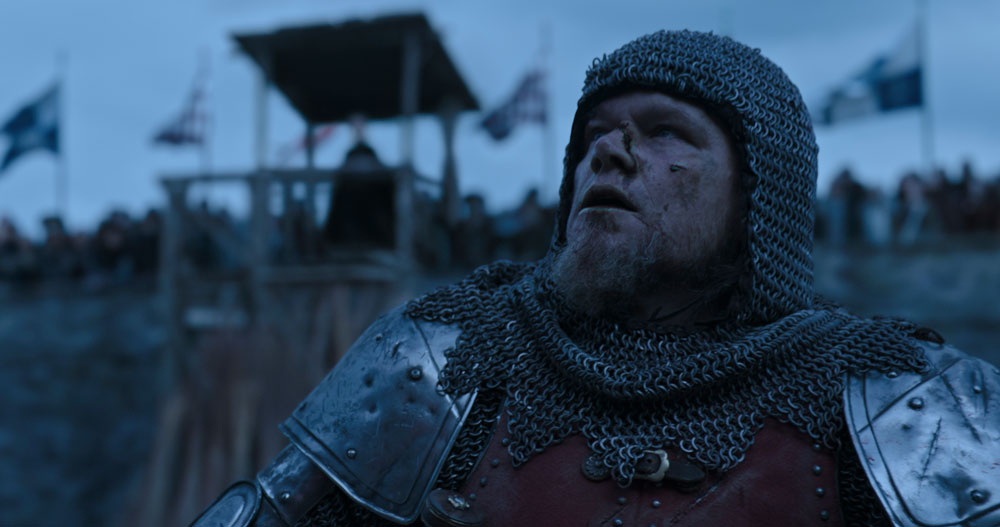Matt Damon, Jodie Comer and Adam Driver star in Ridley Scott’s Shakespearean drama about a 4th century historical drama about a rape in France.
This is a story told with great direction and performances from the cast.
The story is presented in a non-linear fashion, diving into the accounts of the three main characters as they see them. The titular duel happens at the end of the film, with the main focus being on the three narratives being told.
While the film is based on a true historical account, it adds the idea of modern feminism to its story, which serves to rewrite the narrative as it actually happened.
This non-linear storyline offers a great insight in how the different characters view different events and their perspectives. It starts with Sir Jean de Carrouges’ (Matt Damon) account of the story, ending with him accusing Jacques Le Gris of raping his wife. The film then revisits several events from the perspective of Jacques Le Gris, and his position of abusing women with Count Pierre D’alençon (Ben Affleck).
This type of storytelling works well for this tale, because otherwise the shifting perspectives would become too confusing. One harrowing scene – the rape itself – is first shown from Le Gris’ point of view, with Marguerite de Carrouges (Jodie Comer) clearly struggling.
When the film revisits the event from Marguerite’s perspective however, she is struggling but also crying out for help. The use of different camera angles also denotes changes in perspective. Ridley Scott pulls off this idea extremely well, as it could have been hard to follow otherwise.
The trio give excellent performances in their roles, with Matt Damon and Adam Driver both showing different elements of the patriarchy. Matt Damon’s character is constantly waging war, and is caught in a rivalry with his once friend Le Gris. Le Gris a careerist backstabber, as initially being friendly with Sir Jean, but events with the Count mean that he prioritises wealth over friendship. and embodies the more sexual elements of the patriarchy.
However, the historical accuracy of the film needs to be acknowledged. While it is based on a true event that did result in the death of Le Gris, the film makes Marguerite a modern day woman trapped in a backward, medieval world. One of the ways that the modern world inserts itself into Medieval history is through her dialogue. Due to the lack of sources, the screenwriters have invented all of the dialogue for the character, meaning their modern biases come through.
In Medieval France, it would be have Jean de Carrouges making the accusation of rape, and not Marguerite. Marguerite herself would have been sidelined throughout the affair. This omission weakens the film, as it sends the wrong message to audiences about female agency in this time period. The film personifies Marguerite as the Medieval #MeToo movement, tackling the injustice of the time period, when this just isn’t the case.
The Last Duel’s strengths lie in the method of its story delivery, but when it comes to the historical accuracy of the story it misses the mark in its specifics. While the broad strokes are correct, the specifics of the film are inaccurate – making it worse than other historical films that do get the specifics right.
The Last Duel should have used its story to highlight the injustices of the Medieval patriarchal system, not impose the modern struggles into the time period.
6/10
By Kieran Burt
Feature image: 20th Century Studios/Ridley Scott

